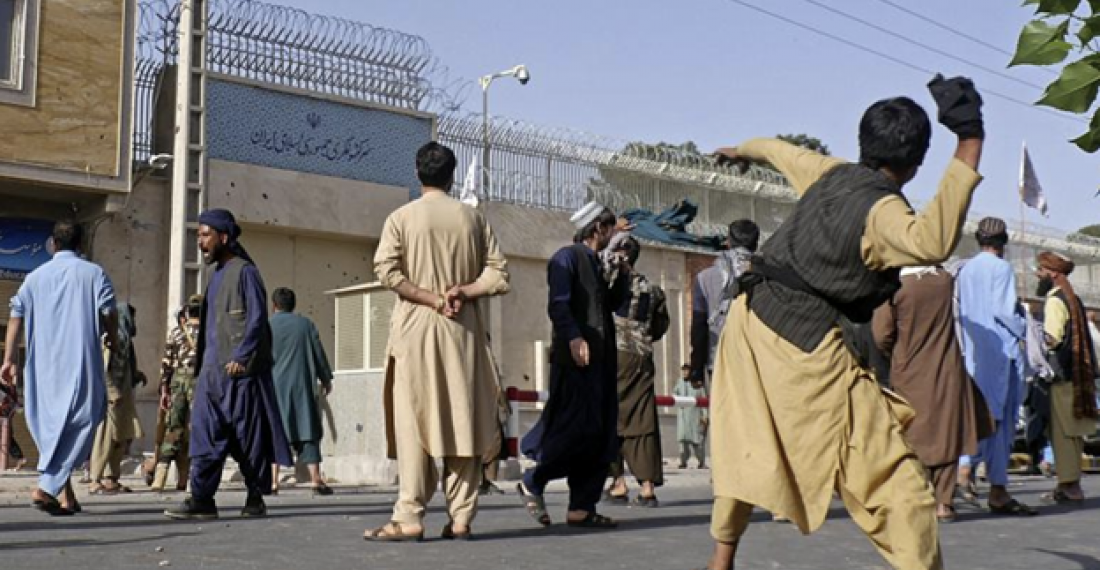After a series of violent attacks on Iranian consulates across Afghanistan, the Iranian government decided on 12 April to temporarily close all consulates in the country and summon the Taliban government’s chargé d’affaires in Tehran. The attacks came in response to videos and accusations of harassment of Afghan migrants and refugees in Iran.
After the stabbings of three clerics earlier this month in the northern city of Mashhad was blamed on an Afghan migrant deemed illegal by Iranian authorities, the government in Tehran called for caution and asked both Afghans and Iranians to “remain vigilant”. A viral video depicting the severe beating of an Afghan man by Iranian security forces led to a widespread response by both officials and citizens in Afghanistan. The video, whose veracity is still in question, sparked outrage, and a Taliban official told Iranian diplomats to "address the concerns of the people and the government of Afghanistan.” Nevertheless, The meetings between officials did not stop protestors from attacking Iranian consulates.
In the Western Afghan city of Herat, protestors threw rocks at the consulate with chants of “Death to Iran” being heard by reporters. In Kabul, the entrance to the Iranian embassy was set alight and in the Eastern Khost province, a more peaceful protest was held. Security concerns were raised by the Iranian government due to the violence, and authorities ultimately decided to close all consulates to protect the safety of its diplomats. The Director General for South Asia at the Foreign Ministry in Tehran summoned the Taliban’s chargé d’affaires to “strongly protest against the attacks”.
The two countries, which share a border of 900 kilometres, have long tussled over the treatment of Afghan citizens in Iran. Immigrants accuse forces in Iran of xenophobia, discrimination, and mistreatment. Iran on the other hand, says that the fact that they have hosted approximately three million Afghans over the last 40 years should be commended by the international community. Iran is yet to formally recognize the Taliban, referring to it only as the “governing body” of Afghanistan. Relations between the nations have been relatively stable; a clash between Iranian and Taliban forces late last year on the shared border has been the only real flashpoint. The issue was settled with in an agreement, and both sides called the incident a “misunderstanding”.






